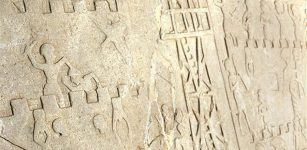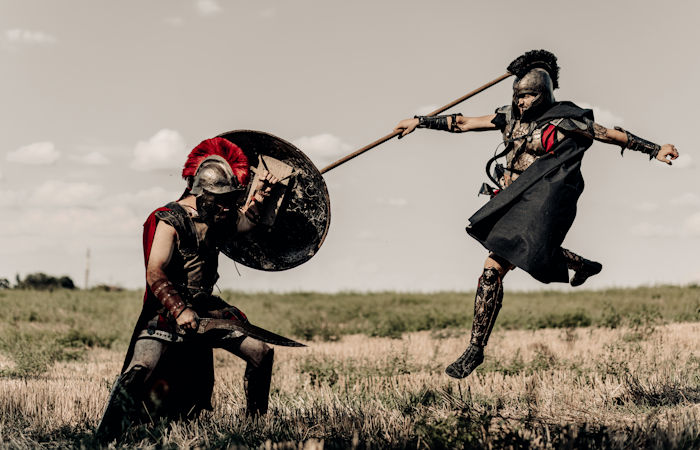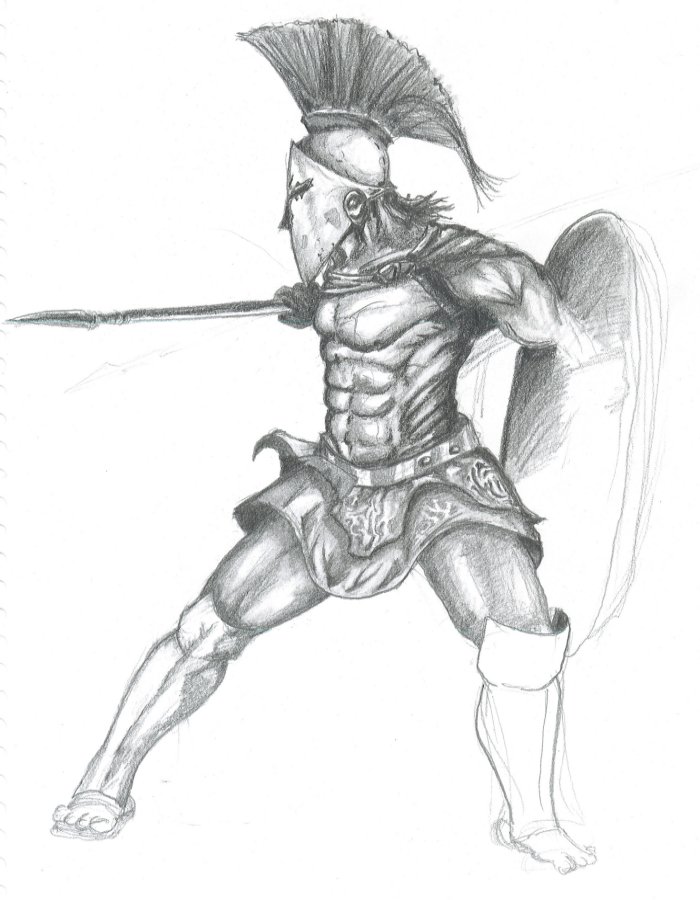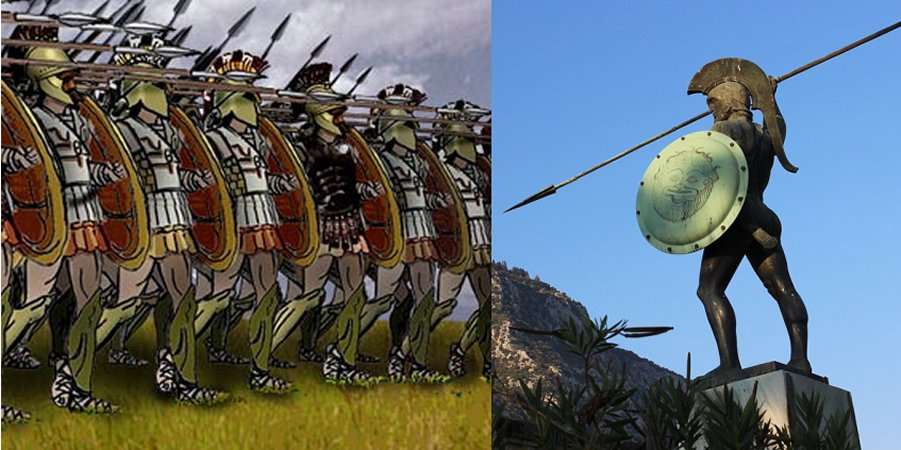Why Was The Spartan Army So Successful?
Conny Waters - AncientPages.com - Sparta was famous for being a city-state that valued discipline. The state’s citizens were expected to be loyal and contribute to Sparta’s prosperity. Located in a valley on the banks of the Eurotas River in the southeastern portion of Greece, it was surrounded by several enemies.
Credit: Adobe Stock - Stanislav
Foreigners were allowed to live in Sparta, but they had no rights as citizens and could be expelled anytime for any reason.
It’s also no coincidence that Spartan warriors were exceptionally skilled, and the army was victorious. Military training and education were mandatory for young boys.
What Was Daily Life For Spartan Warriors?
Ancient records reveal warriors of Sparta had to follow strict rules. Young men trained to become warriors had limited rights to move around freely.
From the age of 7, when military training started, boys and men had to live in confined military barracks until they were 30 years. Leaving those houses was not permitted, not even when the men married. There was not much room for private life.
An image drawn in pencil of a Spartan Warrior. Image credit: SAWg3rd - CC0 1.0
These restrictions occasionally led to those men sneaking out late in the evening to meet their wives.
In Sparta, only the strongest survived. As previously mentioned in Ancient Pages, “one of the harshest facts to come out about this way of living was that the older citizens of Sparta would kill those boys who could not be trained due to a disability.
The boys were thrown into a pit by the elders, who judged the physical ability of each boy in question. Not all were condemned to death, just the weakest ones.”
Spartan warriors were somewhat vain. They often wore long hair and styled it before a battle. The goal was to look as fearsome as possible, but an attractive physical appearance was never wrong. A real warrior never wore any clothes except for the red cape.
Also, a Spartan warrior could not expect to enjoy too much delicious food. Nothing was more ridiculous than a fat warrior. Spartan warriors were expected to be athletic and fit.
Left: The Spartan army was an infantry-based army that fought using the phalanx formation. Credit: Public Domain - Right: Statue of King Leonidas. Credit: Public Domain
The worst sin a Spartan warrior could commit was capitulation. When raising their sons, mothers always told them they should return as soldiers or dead in a battle. The die-or-win mentality was typical among warriors of the ancient world. Viking warriors’ highest goal was to die courage in battle. Only such honorable death could guarantee a Viking entrance to Valhalla, where the great Norse God Odin resided.
The Spartan King Leonidas received superior military training, which prepared him unknowingly for future events. He may not have succeeded in winning an impossible war, but he and his 1,000 men died heroically defending the land that they loved.
It cannot be denied that Spartan warriors were skilled, effective, and courageous, but all their accomplishments were achieved through hard military training that started at a young age.
Written by Conny Waters – AncientPages.com Staff Writer
Updated on October 30, 2022
Copyright © AncientPages.com All rights reserved. This material may not be published, broadcast, rewritten or redistributed in whole or part without the express written permission of AncientPages.com
Expand for referencesMore From Ancient Pages
-
 Harput Relief: 4,000-Year-Old Artifact Pushes Back History Of Region By 1,000 Years
Archaeology | Mar 23, 2017
Harput Relief: 4,000-Year-Old Artifact Pushes Back History Of Region By 1,000 Years
Archaeology | Mar 23, 2017 -
 Ivan The Terrible: Military Arsenal Unearthed Near Moscow
Archaeology | Jan 2, 2016
Ivan The Terrible: Military Arsenal Unearthed Near Moscow
Archaeology | Jan 2, 2016 -
 On This Day In History: Most Unusual Emperor Renzong Of Song Dynasty Was Born – On May 30, 1010
News | May 30, 2016
On This Day In History: Most Unusual Emperor Renzong Of Song Dynasty Was Born – On May 30, 1010
News | May 30, 2016 -
 Beautiful Ancient Egyptian Jewelry From The 26th Dynasty Unearthed At Karnak Temples
Artifacts | Mar 3, 2025
Beautiful Ancient Egyptian Jewelry From The 26th Dynasty Unearthed At Karnak Temples
Artifacts | Mar 3, 2025 -
 Meidum ‘Collapsed’ Pyramid Of Great Builder Pharaoh Snefru
Featured Stories | Jan 2, 2017
Meidum ‘Collapsed’ Pyramid Of Great Builder Pharaoh Snefru
Featured Stories | Jan 2, 2017 -
 Thoth: Ancient Egypt’s Most Mysterious, Highly Venerated God Of Knowledge And Writing
Myths & Legends | May 24, 2017
Thoth: Ancient Egypt’s Most Mysterious, Highly Venerated God Of Knowledge And Writing
Myths & Legends | May 24, 2017 -
 On This Day In History: Treaty Of Seville Signed – On Nov 9, 1729
News | Nov 9, 2016
On This Day In History: Treaty Of Seville Signed – On Nov 9, 1729
News | Nov 9, 2016 -
 On This Day In History: ‘Lady With The Lamp’ – Florence Nightingale Was Born – On May 12, 1820
News | May 12, 2016
On This Day In History: ‘Lady With The Lamp’ – Florence Nightingale Was Born – On May 12, 1820
News | May 12, 2016 -
 Rare Roman Mosaic Of Amazon Warriors Unearthed In Syria Hailed As Major Archaeological Discovery
Archaeology | Oct 12, 2022
Rare Roman Mosaic Of Amazon Warriors Unearthed In Syria Hailed As Major Archaeological Discovery
Archaeology | Oct 12, 2022 -
 Medieval City Dating Back To The Great Northern War Discovered In Tartu, Estonia
Archaeology | Jan 8, 2021
Medieval City Dating Back To The Great Northern War Discovered In Tartu, Estonia
Archaeology | Jan 8, 2021 -
 Mystery Of The 2,000-Year-Old Grave On The Isles Of Scilly Solved!
Archaeology | Jul 28, 2023
Mystery Of The 2,000-Year-Old Grave On The Isles Of Scilly Solved!
Archaeology | Jul 28, 2023 -
 Moses’ Secret Knowledge Of Superior And Forbidden Technology – Alien Intervention And Events Erased From Historical Records – Part 2
Ancient Mysteries | Sep 24, 2020
Moses’ Secret Knowledge Of Superior And Forbidden Technology – Alien Intervention And Events Erased From Historical Records – Part 2
Ancient Mysteries | Sep 24, 2020 -
 The Incas Used Stringy Objects Called ‘Quipus’ To Record Data – We Just Got A Step Closer To Understanding Them
Featured Stories | Nov 26, 2024
The Incas Used Stringy Objects Called ‘Quipus’ To Record Data – We Just Got A Step Closer To Understanding Them
Featured Stories | Nov 26, 2024 -
 Gold Spiral In Early Bronze Age Grave – Unearthed
Archaeology | Jun 1, 2021
Gold Spiral In Early Bronze Age Grave – Unearthed
Archaeology | Jun 1, 2021 -
 A 4,500-Year-Old Collective Tomb In France Reveals Its Secret – The Final Stage In The Formation Of The ‘European Genome’
Featured Stories | Jul 5, 2024
A 4,500-Year-Old Collective Tomb In France Reveals Its Secret – The Final Stage In The Formation Of The ‘European Genome’
Featured Stories | Jul 5, 2024 -
 Capernaum – Was The City On The Sea Jesus’ Home?
Biblical Mysteries | Jan 25, 2019
Capernaum – Was The City On The Sea Jesus’ Home?
Biblical Mysteries | Jan 25, 2019 -
 3,000-year-old pottery found in Papua New Guinea’s highlands
News | Sep 3, 2015
3,000-year-old pottery found in Papua New Guinea’s highlands
News | Sep 3, 2015 -
 Daily Life Of Ancient Maya
Ancient History Facts | Oct 12, 2020
Daily Life Of Ancient Maya
Ancient History Facts | Oct 12, 2020 -
 What Is The Giant Neolithic Circular Structure Near Durrington Walls Henge?
Archaeology | Dec 3, 2025
What Is The Giant Neolithic Circular Structure Near Durrington Walls Henge?
Archaeology | Dec 3, 2025 -
 Rare Medieval Tattoo Depicting A Christogram Unearthed In Ghazali, Sudan
Archaeology | Nov 9, 2023
Rare Medieval Tattoo Depicting A Christogram Unearthed In Ghazali, Sudan
Archaeology | Nov 9, 2023



